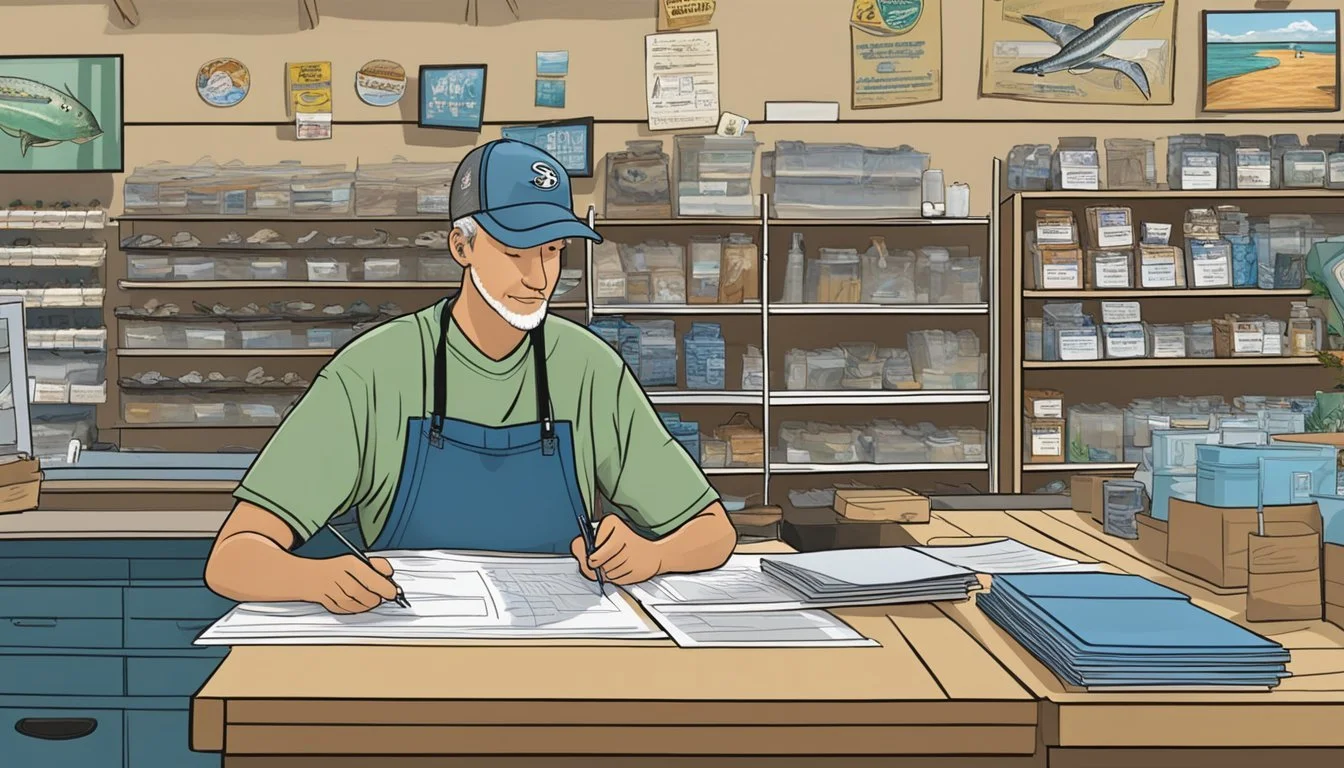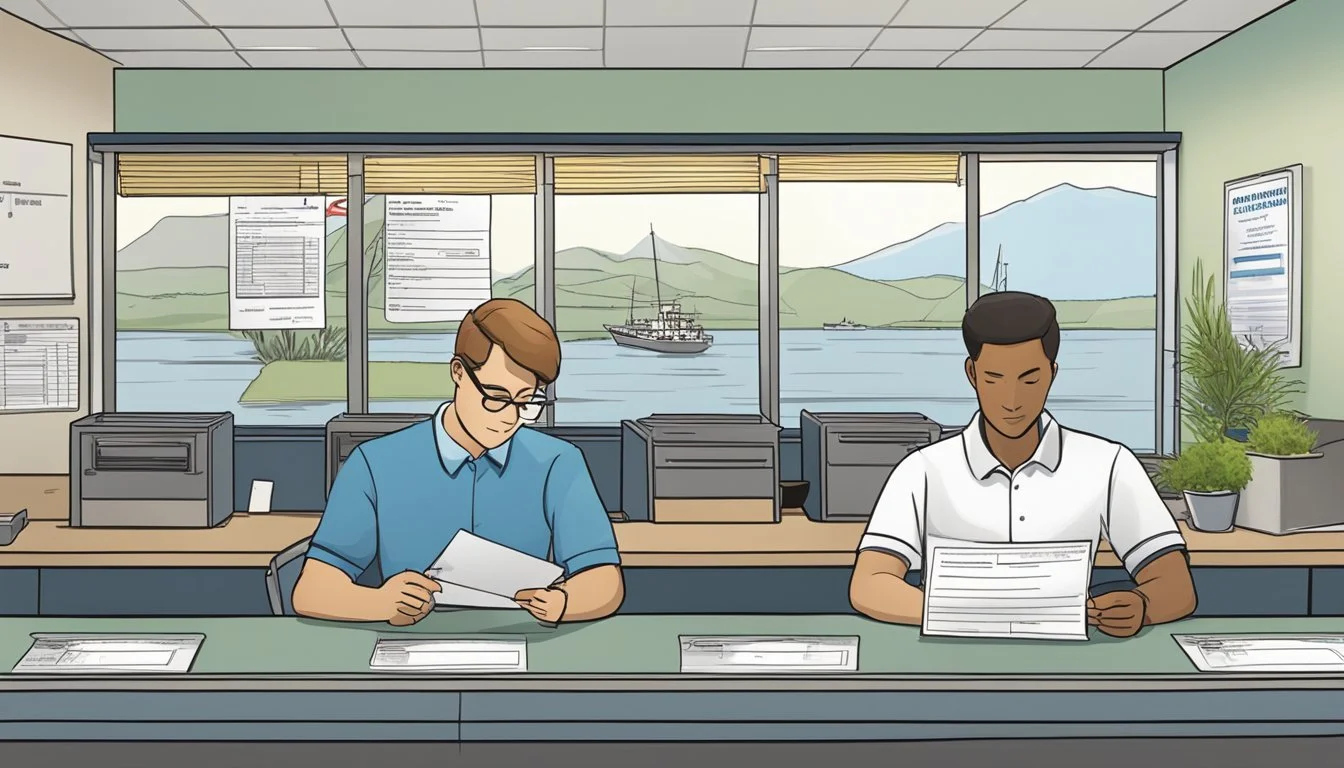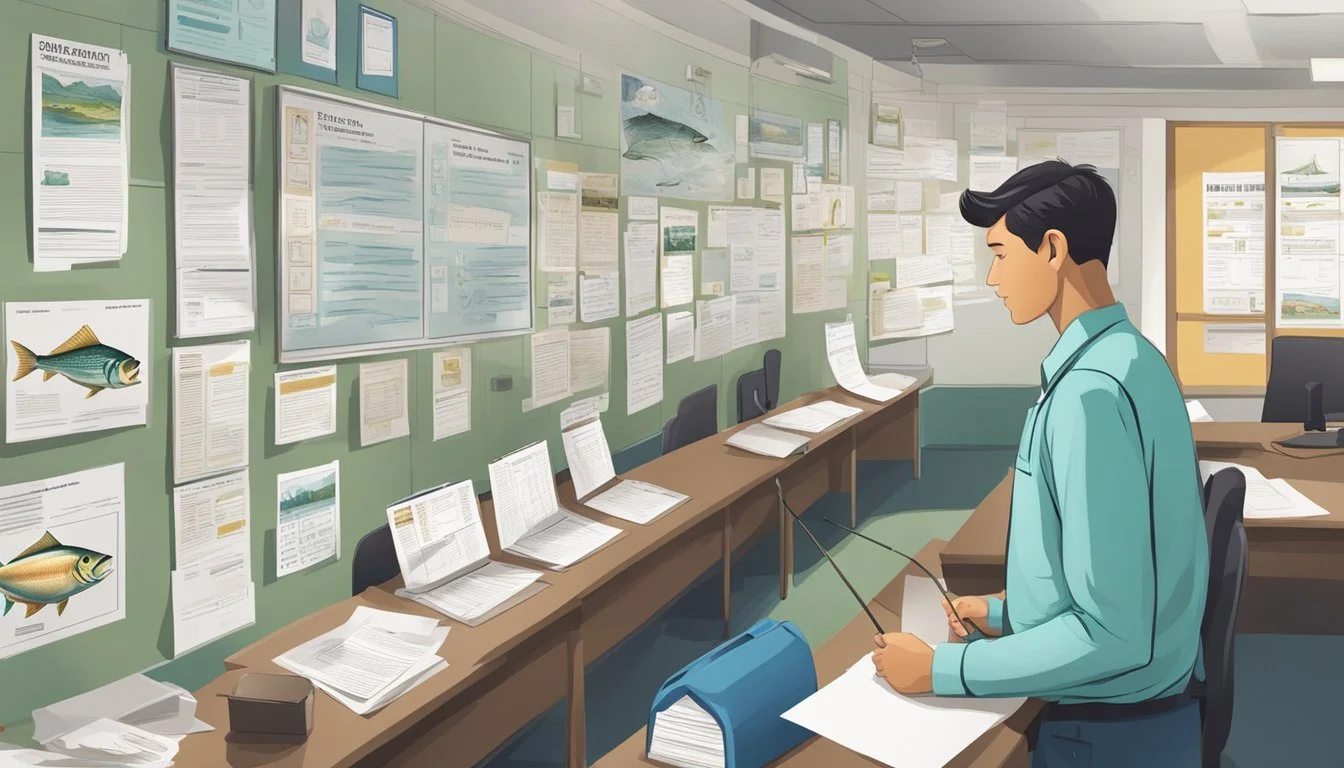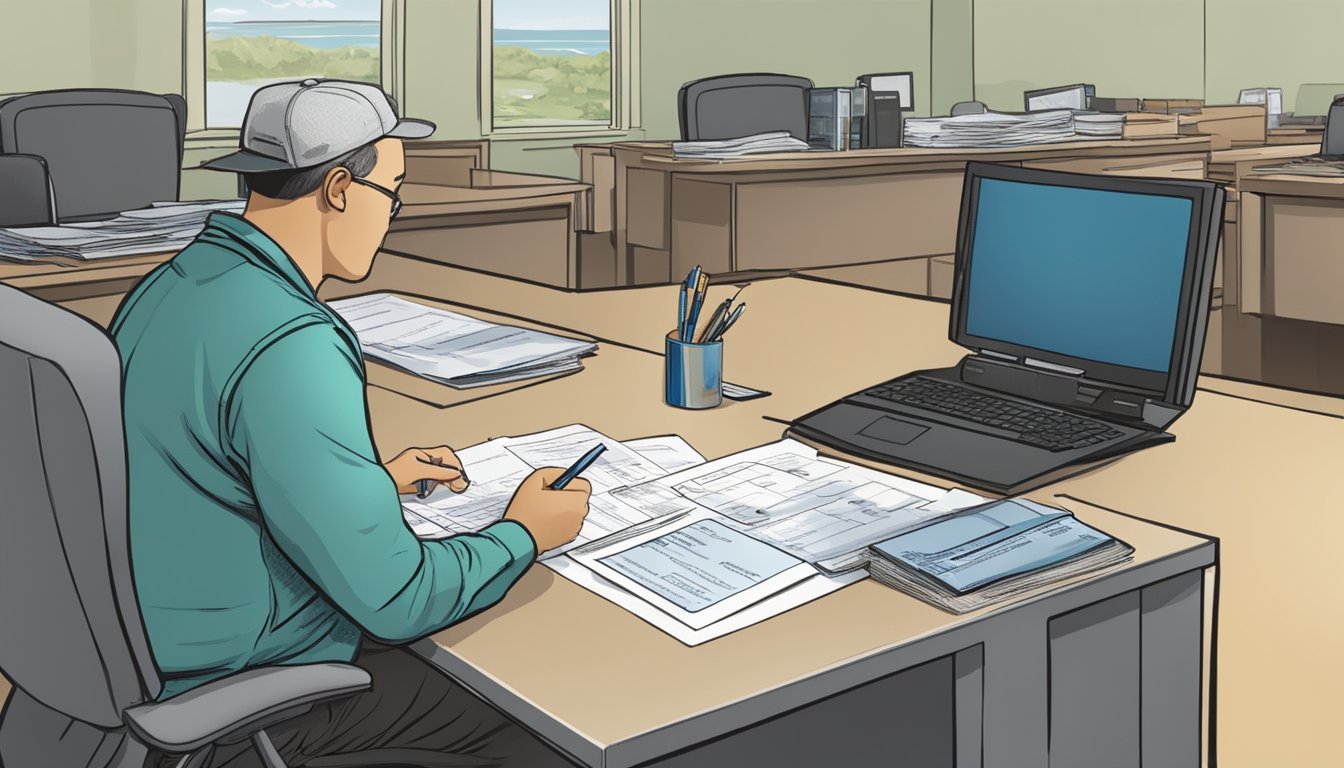How to Get a Washington Saltwater Fishing License
A Step-by-Step Guide
Obtaining a saltwater fishing license in Washington is a straightforward process, designed to ensure both the conservation of marine life and the enjoyment of the state’s rich fishing opportunities for all. Anglers interested in fishing in the Pacific Ocean, Puget Sound, and the Strait of Juan de Fuca are required to have a valid license. The Washington Department of Fish & Wildlife offers a range of licenses including annual, temporary, and combination options to accommodate both resident and non-resident fishers.
Residents, defined as individuals who have lived in Washington for at least 90 consecutive days, must provide proof of residency, such as a Washington driver's license, when applying for a fishing license. The state also offers a range of endorsements and catch record cards for specific species or areas which may be required depending on the fishing activity. The Fish (What wine goes well with fish?) Washington license, for example, is a comprehensive option that includes the Puget Sound Dungeness crab (how long does crab last?)endorsement and the two-pole endorsement, often at a reduced cost compared to purchasing endorsements separately.
Licenses can be acquired with ease through various outlets. Prospective anglers can purchase their licenses online via the Washington Department of Fish & Wildlife's website, over the phone, or in-person at numerous license dealers across the state. It is important to note that when a license is purchased online or by phone, it may take up to 10 days for the physical license to arrive by mail, so planning ahead is advised to ensure the license is in hand before the intended fishing excursion.
Determining Eligibility
Before applying for a Washington saltwater fishing license, individuals should consider their residency status and if any special conditions may apply to their situation, such as being a veteran or having a disability.
Resident vs Non-Resident
Resident:
A person must have established a permanent domicile in Washington for at least 90 consecutive days prior to applying for the license.
They are required to provide proof of residency, such as a Washington driver's license or state ID.
Non-Resident:
Anyone who has not fulfilled the 90-day residency requirement is considered a non-resident.
Non-residents are still eligible to purchase a fishing license, but at different rates than residents.
Special Considerations for Veterans and Disabled Persons
Veterans:
Some veterans are eligible for reduced fees or special licenses.
The eligibility for discounts or special licenses may require documentation like service records or discharge papers.
Disabled Persons:
Individuals with disabilities can apply for reduced fee licenses.
Evidence of disability, such as certification from a licensed medical doctor, advanced registered nurse practitioner, or physician assistant, is required.
Active-Duty Resident Military Personnel:
Active-duty military personnel stationed in Washington may be eligible for resident licenses at resident rates.
Persons with Developmental Disabilities:
Reduced fees or assistance may also be available for individuals with developmental disabilities.
These applicants must provide proof of disability status as per the guidelines provided by the Washington Department of Fish & Wildlife.
Types of Licenses
When pursuing fishing activities in Washington, anglers need to be aware of the various licenses available to them, each tailored to specific fishing environments and durations. An appropriate license ensures legal compliance and supports fishery conservation efforts.
Freshwater vs Saltwater Licenses
In Washington, Freshwater Licenses allow individuals to fish in the state's rivers, lakes, and streams. On the other hand, Saltwater Licenses are required for fishing in marine waters. These licenses cater to anglers based on the type of water body they plan to fish in. It’s important for anglers to choose the right license to align with where they intend to fish.
Combination Licenses
For those who prefer to have the flexibility to fish in both freshwater and saltwater, Washington offers Annual Combination Licenses. This type of license is convenient for anglers who frequent both environments throughout the year. An Annual Combination License includes the privilege to harvest shellfish (What wine goes well with shellfish?) and seaweed, which is an add-on to the usual fishing permissions.
Specialty and Temporary Licenses
Aside from standard annual options, there are Temporary Licenses available for short-term fishing activities. These are ideal for visitors or those planning a brief fishing trip. Specialty licenses exist for specific species and activities such as shellfish or seaweed harvesting, as well as endorsements for two-pole fishing or fishing in particular regions like Puget Sound.
Understanding License Fees
When purchasing a saltwater fishing license in Washington, the cost varies by residency status and age. Licenses may include additional endorsements to expand fishing activities, with pricing structured to accommodate a variety of anglers.
Standard License Fees
Standard licensing fees for saltwater fishing in Washington are delineated between residents and non-residents. For residents, a saltwater fishing license is priced at $30.05, while for non-residents the cost is $59.75. These fees apply to the base license and are subject to change.
Reduced Fees for Certain Groups
Washington offers reduced fees for senior residents, youth anglers, and persons with disabilities. For example, senior residents aged 70 and above can acquire their licenses at a lower rate, though exact prices should be checked with the Washington Department of Fish & Wildlife as they may periodically update.
Extra Endorsements and Permits
Anglers may enhance their fishing experience with extra endorsements and permits. The Two-Pole Endorsement allows an angler to use two poles in freshwater, and its cost is additional to that of the base license fee. Similarly, a Puget Sound Crab Endorsement might be necessary for those looking to harvest Dungeness crab in Puget Sound. Additionally, an Aquatic Invasive Species Prevention Permit is required for watercraft to protect local ecosystems, relevant for anglers who are using boats.
How to Purchase a License
When seeking a Washington saltwater fishing license, one has the flexibility to obtain it through online systems, by phone, or in-person. Prompt service, accurate processing, and convenience are the pillars of these methods, catering to various preferences.
Online Licensing
Purchasers can acquire their saltwater fishing licenses efficiently via the online licensing system accessed through Fishhunt.dfw.wa.gov. The process requires the individual's Social Security Number and an existing WILD ID, if applicable. After completing the transaction, the license is typically mailed and may take up to 10 days to arrive.
Phone and In-Person Options
For those who prefer personal assistance or lack internet access, obtaining a license is also possible by contacting the Washington Department of Fish and Wildlife (WDFW) at 360-902-2464. Alternatively, one can visit a local license dealer. Locations are widely available statewide, ensuring convenient access for all residents.
Required Documentation
When purchasing a saltwater fishing license, individuals must present proper identification, which could be a state-issued ID, Military ID, or a driver's license. Details like the Social Security Number must also be provided. First-time applicants will be assigned a WILD ID, which is necessary for any future license purchases or renewals.
Additional Requirements and Regulations
When obtaining a Washington saltwater fishing license, anglers must be aware of additional requirements and regulations that aim to sustain fish populations and marine ecosystems. These include the use of Catch Record Cards (CRCs), understanding specific size and catch limits, and being aware of protected and restricted species.
Catch Record Cards
Anglers targeting certain species such as Salmon, (What wine goes well with salmon?) Steelhead, Sturgeon, and Halibut are required to document their catch using Catch Record Cards (CRCs). The CRC must be carried alongside the fishing license and filled out accurately to track harvest numbers and assist with fish management efforts.
Understanding Size and Catch Limits
Limits are essential for maintaining healthy fish populations. Anglers must adhere to the following:
Salmon: Verify current size and catch limits set by the Washington Department of Fish & Wildlife as they are subject to change.
Halibut: Specific size requirements and catch limits apply, which can be confirmed through the latest fishing regulations or hotline.
These regulations are stringently enforced, and noncompliance can result in fines.
Protected and Restricted Species
There are species that require special attention due to their conservation status:
Sturgeon: Some areas have catch-and-release-only regulations for this species.
Protected Species: It is illegal to fish for or retain any species listed as endangered or threatened.
Anglers must familiarize themselves with these restrictions to avoid unintentional harm to these vulnerable species.
Special Fishery Opportunities
In Washington, specialized fishing opportunities offer anglers a chance to harvest various species under specific regulations. These seasonal and localized activities require an understanding of area restrictions and legal seasons to ensure responsible and lawful harvesting.
Shellfish and Seaweed Harvesting
For those interested in shellfish and seaweed, a Shellfish/Seaweed License is necessary. This license allows for the harvesting of a variety of shellfish such as clams (What wine goes well with clams?), mussels, (What wine goes well with mussels?) and oysters, as well as seaweed. Regulations pertaining to the harvesting seasons, size, and quantity limits help manage sustainability.
Razor Clam and Crawfish Seasons
Razor Clam harvesting is a popular activity on Washington's coastal waters and usually happens during specific seasons announced by the Washington Department of Fish and Wildlife (WDFW). These seasons are subject to change based on population assessments. For crawfish, enthusiasts can enjoy open seasons that typically do not require a special license, but it is essential to confirm any changes to regulations or requirements each season.
Puget Sound Dungeness Crab
Capture of Puget Sound Dungeness Crab requires adherence to a separate set of rules and a specific crab endorsement on your fishing license. Crabbers must follow strict guidelines, which include season dates, catch record cards for tracking harvest, and gear specifications. All legal-sized crabs caught must be recorded immediately to ensure accurate data collection and species protection.
Fishing and Conservation
Acquiring a saltwater fishing license in Washington not only offers the privilege to fish but also serves as a vital contribution to wildlife conservation and habitat protection. Funds from license fees directly support various conservation efforts, ensuring the sustainability of marine life and environments.
Supporting Wildlife and Habitat
License fees contribute to the preservation of Washington's diverse marine habitats, crucial for sustaining fish populations and other aquatic wildlife. These funds are allocated towards:
Habitat restoration projects: Improving water quality and ecosystem health.
Research and monitoring: Studying fish populations to inform management decisions.
Education: Providing the public with information on sustainable fishing practices.
Catch and Release Guidelines
Catch and release practices are encouraged to minimize the impact on fish populations, especially when targeting species with conservation concerns. Adhering to the following guidelines ensures released fish have a higher survival rate:
Use barbless hooks to cause less physical harm to the fish.
Handle fish with wet hands or gloves to protect their slime coat.
Keep the fish in the water as much as possible during release.
Invasive Species and Ecosystem Preservation
Invasive species pose a significant threat to Washington's marine ecosystems. Being vigilant and proactive in identifying and reporting these species helps to:
Prevent the spread of non-native species that can out-compete native wildlife.
Maintain ecological balance, essential for the health of fish populations.
Protect indigenous species, such as relic shells and common carp, from the impacts of invasive species.
Access and Additional Permissions
Acquiring a saltwater fishing license in Washington is a key step, but anglers must also consider various passes and permits that grant access or authorize specific fishing activities. Understanding these additional permissions is essential for a legal and hassle-free fishing experience.
Discover Pass and Vehicle Access Pass
Discover Pass: For access to state-managed recreation lands, a Discover Pass is mandatory. This pass allows vehicle access to millions of acres of Washington state parks and recreation lands.
Annual Discover Pass: $30
One-Day Pass: $10
Vehicle Access Pass (VAP): Included with the purchase of a fishing license, a VAP provides access to Washington Department of Fish and Wildlife (WDFW) sites.
Note: The Discover Pass does not replace the VAP and vice versa; they serve different areas.
Restricted Area Access
Certain areas in Washington may require additional permits for access, particularly if they are environmentally sensitive or privately owned. Anglers should check the specific area regulations to ensure compliance.
Wheelchair Access: Designated areas may require a special Parking Pass to accommodate wheelchair access.
Parking Passes: Some sites may necessitate specific parking passes, separate from the Discover Pass or VAP. Always verify the requirements for your destination.
Migratory Bird Regulations
Migratory Bird Permit: For fishing activities that may intersect with migratory bird hunting, such as targeting certain waterfowl species, anglers must obtain a Migratory Bird Hunt Authorization. This ensures the protection of bird populations during their migration periods.
Migratory Bird Hunt Authorization: Linked with the state's fishing license, it must be carried at all times while fishing in waters where migratory bird regulations are applicable.
Planning Your Fishing Trip
Preparing for a fishing trip in Washington necessitates careful planning to ensure compliance with regulations and a successful outing. Key considerations include checking the latest seasons and updates, knowing what to bring for the trip, and understanding safety and etiquette on the water.
Checking Fishing Seasons and Updates
Before setting out, anglers should consult the Washington Department of Fish and Wildlife (WDFW) for current fishing seasons and regulations. This is crucial as fishing seasons can vary by species and location. For instance, salmon fishing may be open in one area while closed in another due to conservation efforts. Updates on emergency rule changes or closures can directly affect fishing trip plans, and it's essential to stay informed. Anglers can check these updates and purchase a fishing license online through the Fish Washington website or the WDFW mobile app.
What to Bring
A successful fishing trip requires the correct gear and documents. Here's an essential list of what to bring:
Fishing License: Everyone age 15 and older must carry a valid fishing license. Licenses can be purchased online from the WDFW.
Catch Record Card (if necessary): Species like salmon, steelhead, sturgeon, and halibut require a card to track your harvest.
Tackle and Gear: Bring species-specific tackle for the fish you intend to target.
Clothing: Appropriate clothing for weather conditions, including a waterproof layer.
Safety Equipment: Life vests, first aid kit, navigation tools, and communication devices.
Remember, not all species require a license, and some are catch-and-release only, so gear selection should match your target species and adhere to regulations.
Safety and Etiquette
Safety is paramount when on a fishing trip. Always wear a life jacket when on a boat and check weather conditions before departing. Inform someone about your trip plans and expected return time.
Etiquette includes respecting other anglers' space, following the WDFW regulations, and maintaining the cleanliness of the fishing site. Additionally, proper handling of fish, especially when practicing catch-and-release, is essential to ensure their survival upon release.
By following these guidelines and understanding the regulations set forth by the WDFW, anglers can look forward to a rewarding experience as they Get Outdoors in Washington's diverse and abundant fishing environments.









